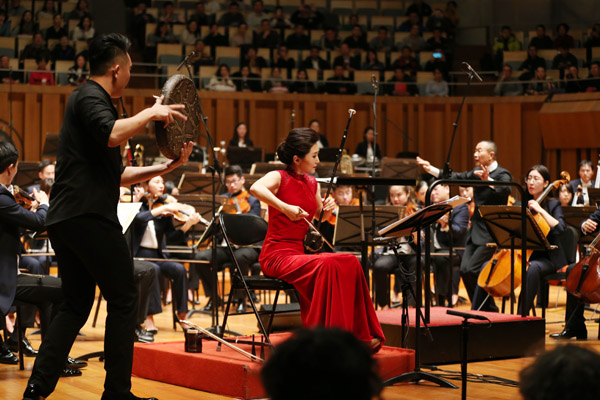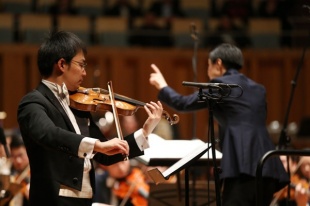On a high note


Leading composers say China's music scene has improved with the reform and opening-up, Chen Nan reports.
In 1978, China launched economic reforms that subsequently touched different aspects of citizens' lives, including music.
A year earlier, the national college entrance exam resumed-after the "cultural revolution" (1966-76) had ended-and the Beijing-based Central Conservatory of Music, which also reopened then, set up four student-enrollment offices in Beijing, Shanghai, Guangzhou and Chengdu, attracting over 170,000 applicants.
But only 105 students could be admitted to the school in 1977.
The six teachers of the conservatory then, including Li Chunguang and Yang Jun, wrote a letter to the late Chinese leader Deng Xiaoping, asking for permission to increase the intake of students. Two days later, Deng replied, saying he had agreed to their request. The number was raised to 213.
"The teachers wrote the letter because they saw many talented youngsters at the audition and hoped that the young people would get the opportunity to study in the school," said music conductor and president of the Central Conservatory of Music, Yu Feng, during a forum at the school on Dec 10, marking the 40th anniversary of the reform and opening-up.
"It helped define an era of China's music scene."
Two concerts were held at the National Center for the Performing Arts on Dec 10 and 11, with performances by the Central Conservatory of Music Symphony Orchestra under the baton of Chen Lin, a student of Yu.
They showcased China's achievements in classical music over the past 40 years. The repertories featured pieces by graduates of the conservatory, who are world-renowned musicians today, including Extase for oboe and orchestra by Chen Qigang, Crouching Tiger, Hidden Dragon by Tan Dun and Horizon, Op 20, for soprano, baritone and orchestra by Ye Xiaogang.





































